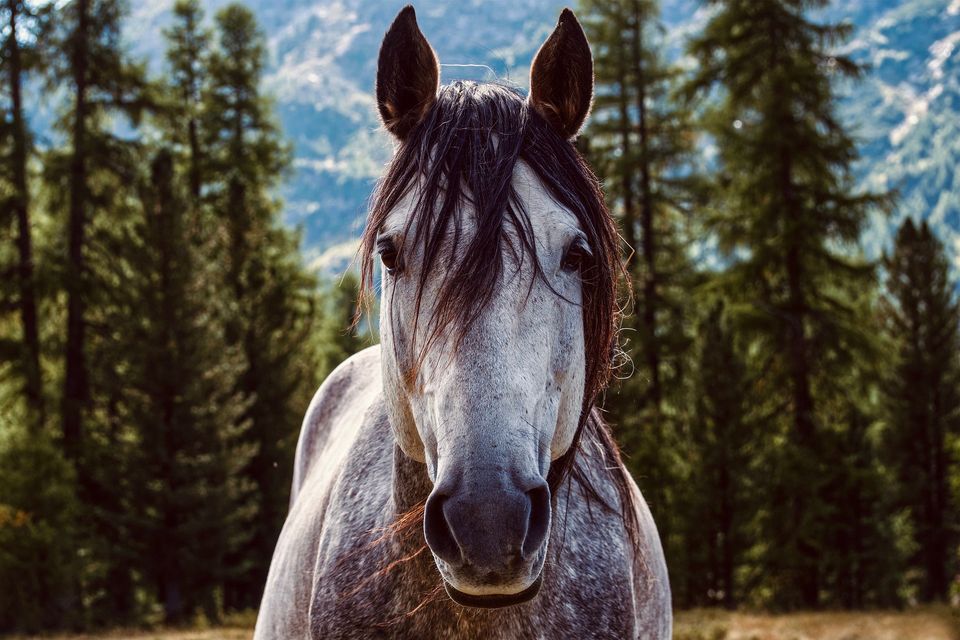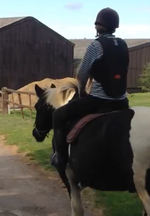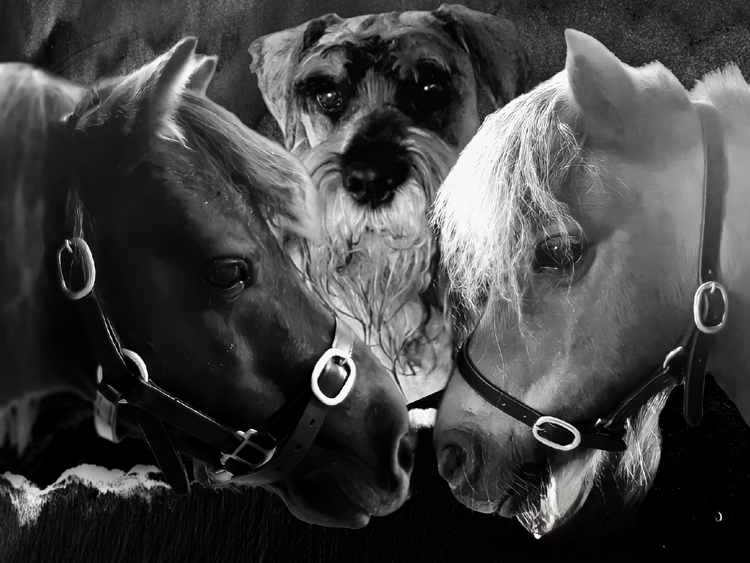A Horse's Value

One of the first things we do in the horse world is attach a value to our horses. Usually, the horses with the best training or the horses with the best potential for riding are priced the highest. This is not an inherently bad thing; however, it may set us up to subconsciously see our horse’s riding ability as their most important aspect.
When you are looking to welcome a new horse, it is sensible to ensure that the horse you are thinking of purchasing is a good match for you and fits what you enjoy doing. The problem is when we carry this monetary value over to the horse’s overall value, and start seeing a competition horse, for example, as better than a trail horse. If you are looking for a competition horse, then yes, they would be a better fit for you. But just like a competition rider and a trail rider, they are not superior to the other horse in general.
It is easy for the competition horse’s owner to look at their horse and feel he or she represents them. They might feel a higher sense of status because of their horse’s achievements and the ribbons they have won. This links to the way we can value our horses based on their use in riding, rather than on our relationship with them. A horse’s non-monetary value should lay outside of their riding ability and level of training. It should lay in the things that make them 'them'. Horses value us on how we make them feel and we can choose to do the same.
The potential for horses to affect how we feel is, for many of us, unparalleled. Just seeing a horse at a distance can remind us to breathe. That familiar horsey scent can take us back into the moment, into their soulful eyes and out of the spirals of human worries that we get stuck in. When enjoying our horses means more than just riding them, not being able to ride them due to lameness or any other reason does not come with as many layers.
Being disappointed about not being able to ride and upset about your horse being injured is more than understandable. But when we look at our horses and see all of the other things that we cherish about them, when we really pay attention to these things and appreciate them, not being able to ride does not always feel like such a blow. How they greet you at the fence; how they enjoy being taken for an in-hand walk and how walking next to them provides you with a new perspective than being on their back; how being together with no expectations feels and the calming sound of them chewing hay; the beauty that comes from them just being and you observing.
For many people, not being able to ride has presented an opportunity to actually do more with their horses as they discover the joy that comes from interacting with your horse in other ways, whether this be through opening up the world of groundwork or picking up on a number of new things about your horse.
Not being able to ride is not something that we ask for, but looking at your horse in this way can change your perspective around it, and make those feelings of the situation being unfair have less power over you. I have full sympathy for all of those who long to ride and are not able to, having been amongst them myself, and do not mean to suggest that it is an easy situation to be in. What I am describing here is another way to feel your love for your horse and further your relationship and training, without riding being involved.
A horse’s value does not have to be solely in riding. Horses matter for more than that.
The time you enjoy riding together can be a part of your love for them, but there is so much more there waiting to be found, too.
Alex Bowyer



